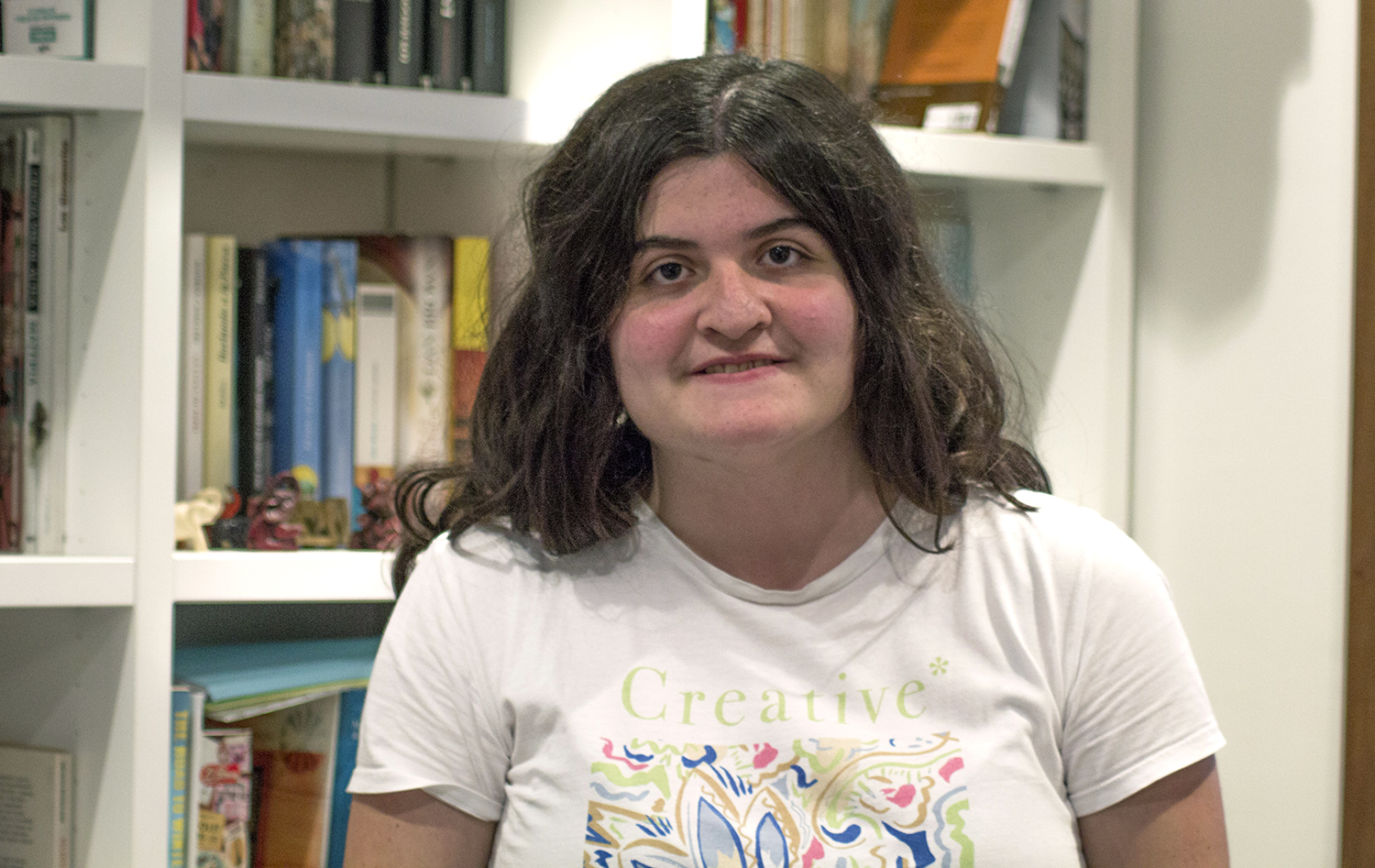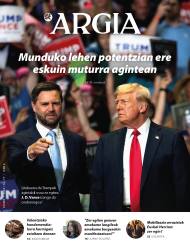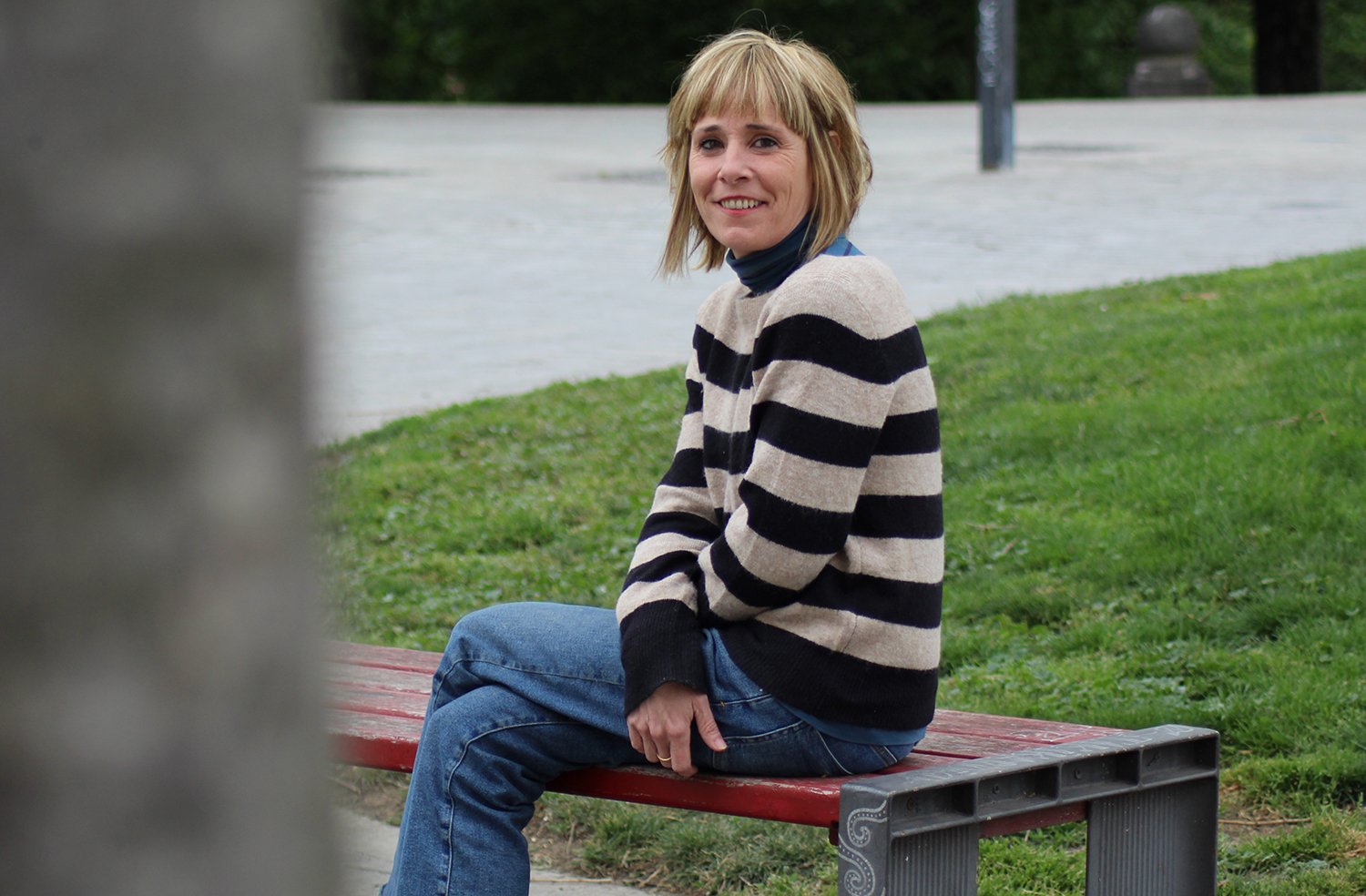"The road has been cut and we are in a vacuum"
- Leire Manzanares Etxeberria (Donostia-San Sebastián, 2005) is passionate about swimming, skating and reading. It has a developmental disorder and is located in the Task Learning Classroom (ZIG). She's been looking for information with her parents to explore the possibilities of continuing to learn, but they've found a pathway full of obstacles.

Leire Manzanares needs the help of a person who guides him in his studies. Up to 2 ESO had the help of an educator, but from 3 onwards they did not give him help, so he went to the ZIG room. Manzanares is clear that he wants to continue training. He talks with his parents about the obstacles to further learning. They knock at the door, but they've achieved very little. “We want the opportunities that others have.”
So far, the way forward was written "quite a bit," but suddenly it's crashed into a wall, so they've drifted away. They have searched for information everywhere, but have found “few” possibilities: “The road has been cut and we are in a vacuum. What will we do now?”
This Manzanares course is in the ZIG Hall. “The only option we have is the ZIG Hall, but we can only be until we are twenty years old,” they said. Manzanares will be 20 in September. For this reason, several families in the class have requested a one-year extension: “We knew we would probably deny ourselves, but perhaps because of this we can give others the opportunity next year.”
In the case of students with educational needs, they undertake a curricular adaptation and work on the subjects adapted to the students' needs. But in the case of Manzanares and others they cannot receive any titles: “In theory you can’t continue studying without a degree; then the only option is to attend Basic Vocational Training if you are accepted.”
"They are immediately redirected. Do you need to go to work at age 20?"
In the case of Manzanares, since the ESO has not finished, it plans to carry out traineeships at the Gureak company in January. In Gureak they work mainly in the industrial sector, services and marketing, and work mainly with people with intellectual disabilities. Once the practices have been completed, it is possible to continue working on them, but only a few have contract and pay: “People who do an occupational job work full time, but do not receive wages, only one tip that does not reach 200 euros.”
Emergency referral to work
In the past year, they asked Manzanares what he wanted to do the internships and said something related to the audiovisual world. That is why Gureak has called for practices in this regard. In addition, it has called for the possibility of practising in the Administration. “We think it’s a nice idea to keep learning. In the end, our goal is to get the most juice out of the learning process and keep moving forward,” they explained. It is not only the concern of Manzanares and his family, it is also that of many colleagues: “Why do they have to stop studying?”
They report that there is too much haste to start work: "They're being sent to work immediately. Is it necessary to go to work at age 20?” Manzanares has two older sisters who are still learning: “Why does Leire have to start working? How fast are we as a society?”
A PART OF THE BODY
“Arms and legs for swimming.”











